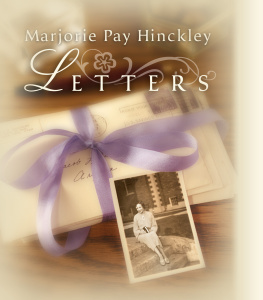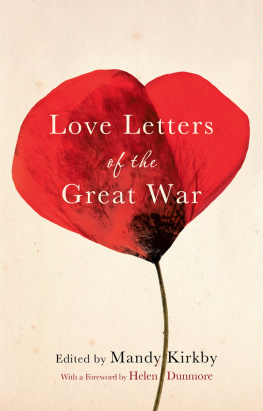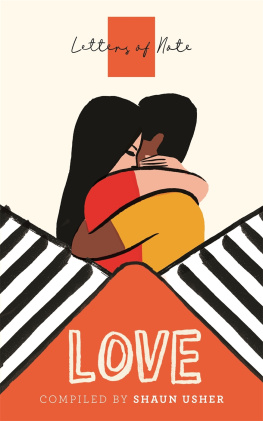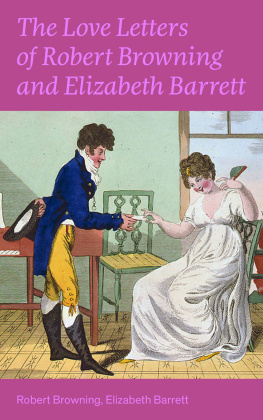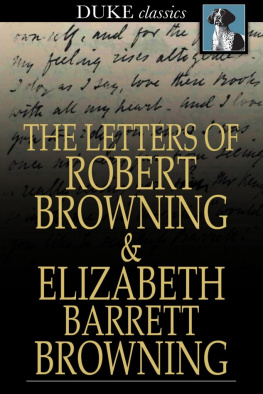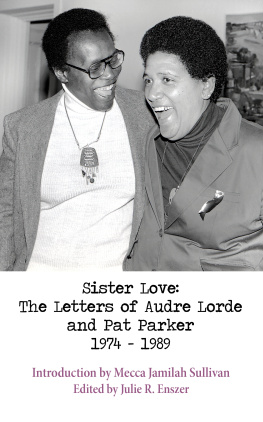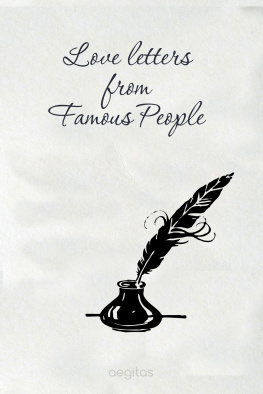Love Letters
of Great Men
Love Letters
of Great Men
Edited by Ursula Doyle

LOVE LETTERS OF GREAT MEN. This selection and commentary copyright 2008 by Ursula Doyle. All rights reserved. Printed in the United States of America. For information, address St. Martins Press, 175 Fifth Avenue, New York, N.Y 10010.
www.stmartins.com
Library of Congress Cataloging-in-Publication Data
Love letters of great men / edited by Ursula Doyle.1st U.S. ed.
p. cm.
Includes bibliographical references.
eISBN 978-1-4299-2008-7
1. Love-letters. I. Doyle, Ursula.
PN6140.L7L63 2008
809.693543dc22
2008035392
First published in Great Britain by Macmillan, an imprint of Pan Macmillan Ltd
1 0 9 8 7 6 5 4 3
To the memory of three great men:
JSS, JD, AJD
Contents
Introduction
The commonly held view these days is that people dont write love letters any more, and that email and text messaging are death to romance. And it does seem unlikely that even the most impassioned lover would today claim, as the playwright Congreve does, that nothing but you can lay hold of my mind, and that can lay hold of nothing but you; then again, Congreve was a literary genius. But Nelson most definitely was not, and even he came up with the stirring formulation, to Lady Hamilton, Nelsons Alpha and Omega is Emma! Perhaps people have grown less romantic and more cynical. Or perhaps people were less self-conscious than we are today; certainly, irony, the presiding spirit of our age, has almost no place in this collection.
So, while reading all these love letters, and finding out the stories behind them, it was tempting to think that we modern barbarians have lost faith, both in love itself and in the art of its expression. But in fact, for the most part, it wasnt the elegantly worked, impassioned declarations that I found most touching in the letters that follow, or rather, not those alone; it was when they bumped up against more prosaic concerns, like the unreliability of the postal service, or the need for clean linen, or the sending of regards to the beloveds mother, or a description of a dream, that the letters suddenly came alive somehow, and their writers seemed more human. It could be argued that the flowery declarations were more for show (and, in some cases, posterity) than the genuine expression of genuine feeling that they grew from convention rather than conviction. And there is a case for calling this book, Great Men: Going On About Themselves Since AD 61 certainly some of those here would have benefited from being taken aside and gently told: its not All About You.
But to claim that a text message saying IN PUB FTBL XTR TIME BACK LATR XX is more genuine, and therefore romantic, than a declaration such as Byrons that I more than love you and cannot cease to love you is obviously nonsense. So while it is to be hoped that this collection entertains, moves and sometimes amuses its readers, it might also serve to remind todays Great Men that literary genius is not a requirement for a heartfelt letter or text message, or email of love.
Ursula Doyle, London, 2008
John Donne
Anne Donne
Un-done
John Donne writing from Fleet Prison to his wife
after their secret wedding, December 1601

| Pliny the Younger
c. AD 61c. AD 112 |
Pliny the Younger (Gaius Plinius Caecilius Secundus) was the son of a landowner in northern Italy. After the death of his father, he was brought up by his uncle, Pliny the Elder, the author of a famous encyclopaedia on natural history. In AD 79, Pliny the Elder was killed during the eruption of Vesuvius.
Pliny had a career in law and government, first as a consul, and then as governor of a Roman province. He left behind ten books of letters: nine to friends and colleagues, the tenth to the emperor Trajan.

To Calpurnia, his wife
You will not believe what a longing for you possesses me. The chief cause of this is my love; and then we have not grown used to be apart. So it comes to pass that I lie awake a great part of the night, thinking of you; and that by day, when the hours return at which I was wont to visit you, my feet take me, as it is so truly said, to your chamber, but not finding you there I return, sick and sad at heart, like an excluded lover. The only time that is free from these torments is when I am being worn out at the bar, and in the suits of my friends. Judge you what must be my life when I find my repose in toil, my solace in wretchedness and anxiety. Farewell.

| Henry VIII,
14911547 |
Henry VIII first encountered Anne Boleyn in 1526, when he was married to his first wife, Katherine of Aragon. The Roman Catholic Church did not allow divorce, and so Henry, obsessed with Anne, who refused to become his mistress, moved heaven and earth to persuade the Pope to grant him an annulment. The Pope refused, which led to Henrys break with Rome and the establishment of the Church of England with Henry as its Supreme Head (Henry did not have problems with self-esteem: see the kind gift to Anne he mentions in the letter below). The couple were finally married, after seven years of turmoil, in January 1533, and Anne gave birth to her daughter Elizabeth (who became Elizabeth I) that September. In May 1536, Queen Anne was arrested and charged with adultery with several men including her own brother, George, Viscount Rochford. She was found guilty, and beheaded at the Tower of London. On the same day, her marriage to Henry was declared null and void. Eleven days later, Henry married Jane Seymour, the only one of the lucky six wives to bear him a son who survived him, Edward VI.

To Anne Boleyn
My Mistress and my Friend:
My heart and I surrender themselves into your hands, and we supplicate to be commended to your good graces, and that by absence your affections may not be diminished to us, for that would be to augment our pain, which would be a great pity, since absence gives enough, and more than I ever thought could be felt. This brings to my mind a fact in astronomy, which is, that the further the poles are from the sun, notwithstanding, the more scorching is the heat. Thus is it with our love; absence has placed distance between us, nevertheless fervor increases at least on my part. I hope the same from you, assuring you that in my case the anguish of absence is so great that it would be intolerable were it not for the firm hope I have of your indissoluble affection towards me. In order to remind you of it, and because I cannot in person be in your presence, I send you the thing which comes nearest that is possible, that is to say, my picture, and the whole device, which you already know of, set in bracelets, wishing myself in their place when it pleases you. This is from the hand of
Your servant and friend,
H.R.
Next page

